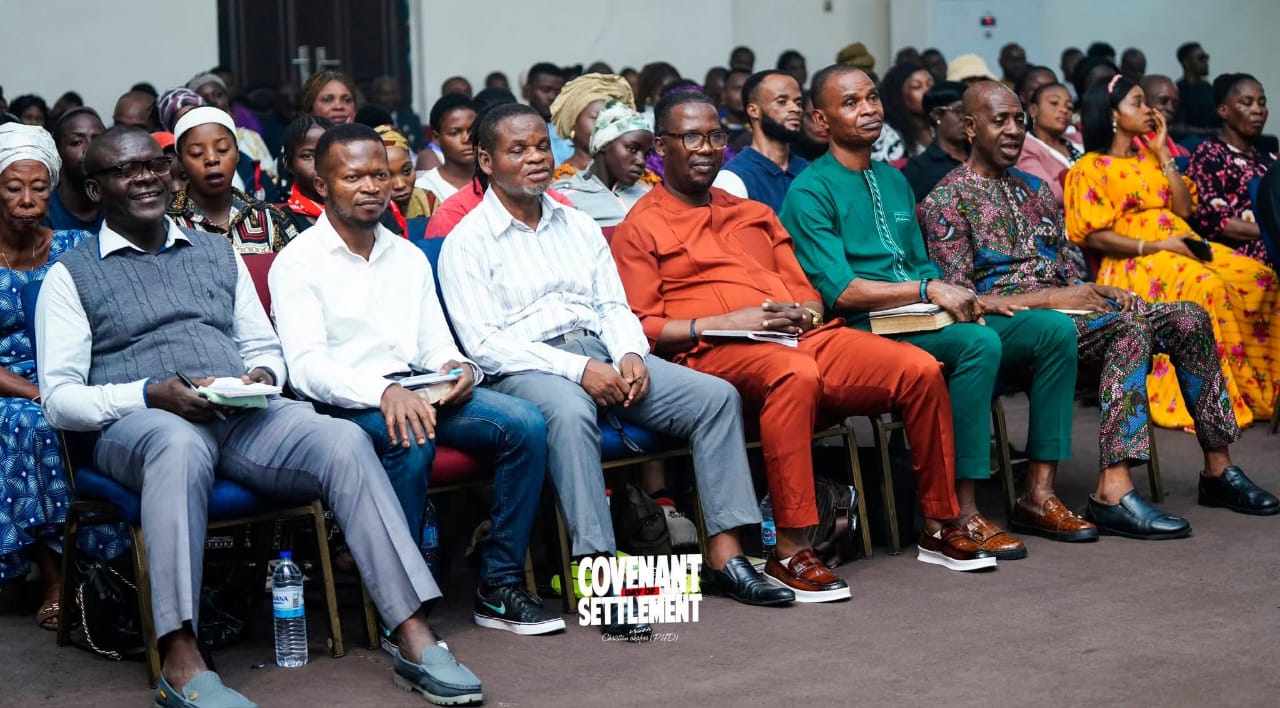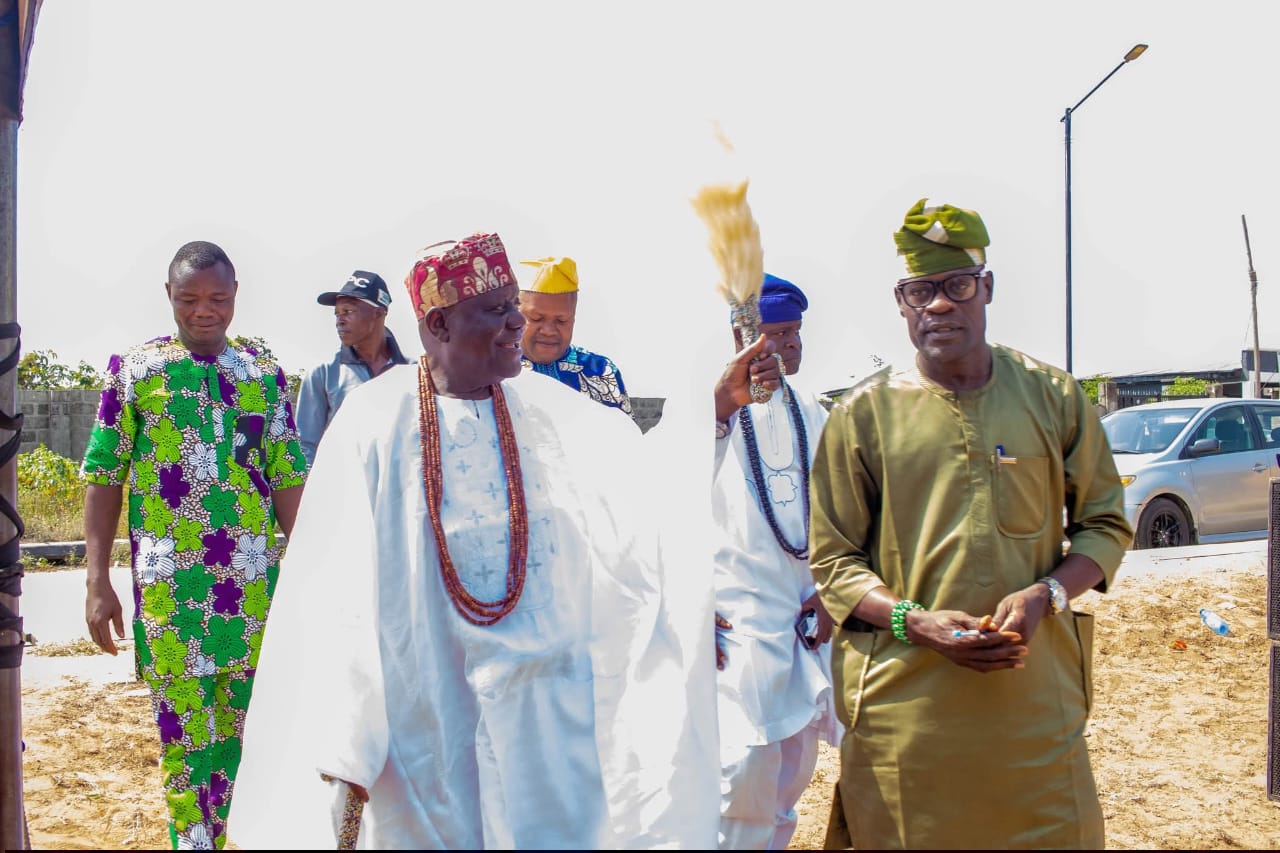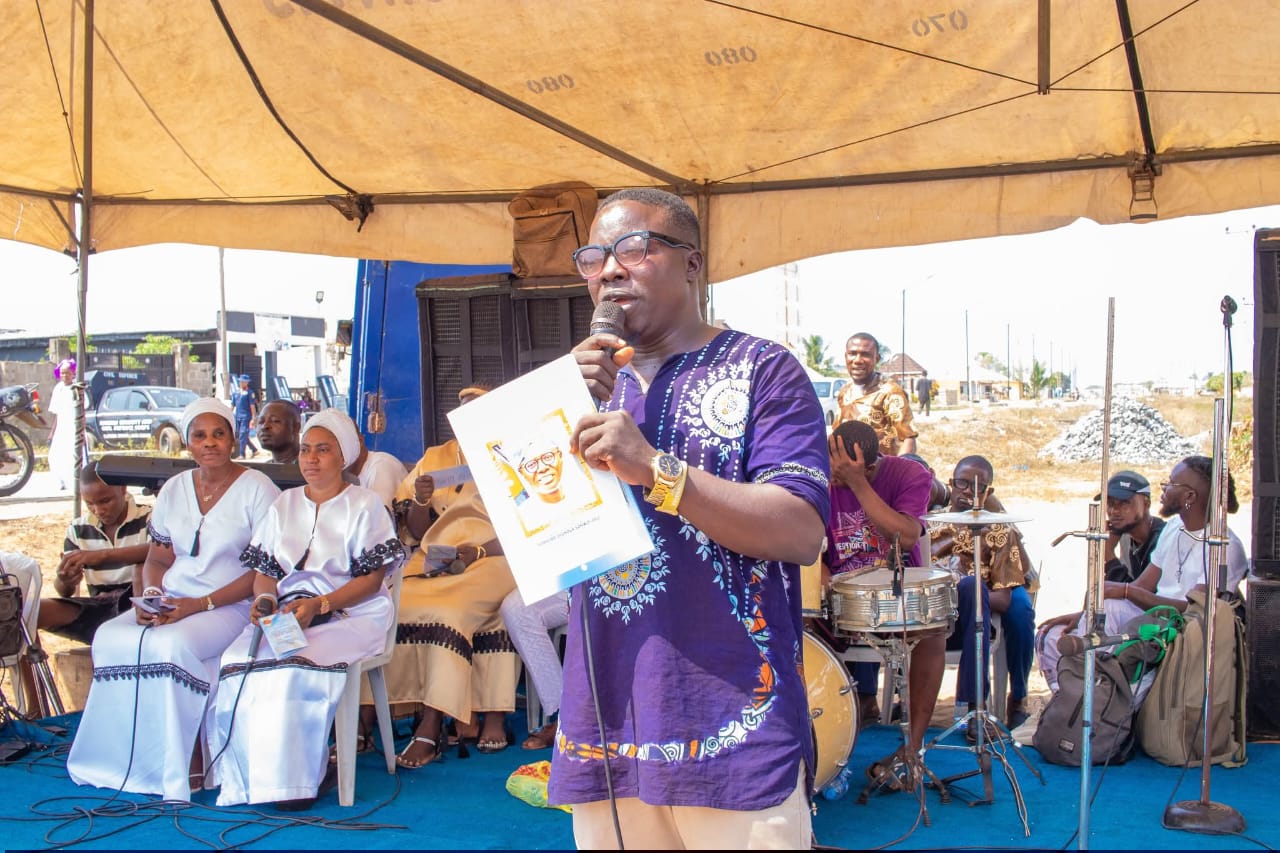society
Estranged Husband Drags Diezani To Court
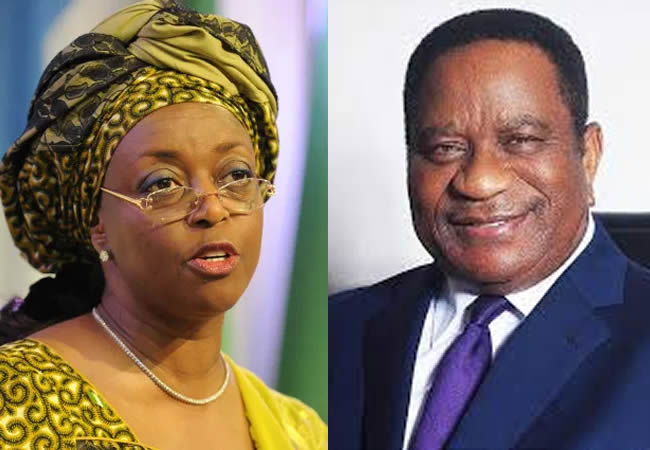
Estranged Husband Drags Diezani To Court
A former Chief of Naval Staff, Admiral Alison Madueke, has filed a petition in the Lagos State High Court, seeking a legal declaration to end his marriage to Diezani and requesting that she stop using his last name.
He is asking the court to order the former Minister of Petroleum Resources to revert to her maiden name, Agama.
This was contained in Madueke’s petition for jactitation of marriage (declaration that a marital union has ended).
The ex-Chief of Naval Staff argues that Diezani’s ongoing use of his name despite their marriage being legally over is damaging to his reputation and could lead to unintended consequences, including mistaken liability, particularly given the corruption allegations against her.
Madueke is a former military governor of Anambra and Imo states. He married Diezani on June 30, 1999, under the Marriage Act.
The petitioner, Madueke, noted that Diezani had previously filed for divorce at the Nassarawa State High Court in Mararaba Gurku in November 2021, citing an irreconcilable breakdown of their marriage, seeking to end their union formally.
He said he did not oppose the suit, resulting in the court’s dissolution of the marriage, yet Diezani persists in using his surname, despite the formal termination of their marital union.
He stated, “On the 13th day of April 2022, judgment was delivered in Suit No. NSD/MG345/2021 by Hon. Justice A.A. Ozegya dissolving the marriage between the petitioner and the respondent on the ground that the marriage has broken down irretrievably.
“The said dissolution of marriage has now become absolute by the operation of law.
“Even though the marriage has been dissolved and is now legally finalised, the respondent continues to use the petitioner’s first name (Alison) and surname (Madueke) as her own without any justification or consent from the petitioner.
“It is now more than two-years that the respondent continues to use the name of the petitioner to his embarrassment.”
Madueke revealed that he directed his legal representatives to serve Diezani a formal request on December 14, 2023, demanding that she cease using his surname and revert to her maiden name, Agama.
However, despite this legal notice, Diezani has failed to respond and continues to use his name.
The petition further read, “The respondent has continued to hold out herself as the wife of the petitioner even when the marriage has been dissolved.
“The respondent is undergoing criminal trials in both Nigeria and the United Kingdom. The charge in Nigeria is Suit No. FUC/ABI/CR/208/2010.
“The respondent faces public allegations of corruption and financial misconduct, for which trials are ongoing for both.
“The persistent portrayal of the respondent as the spouse of the petitioner is creating embarrassment, a misleading impression and tarnishing the reputation, integrity, and public image of the petitioner.
“The respondent’s continued use of the petitioner’s first and surname falsely suggests to the public a continuing relationship between the parties though same has since legally ended.
“The respondent’s continued use of the petitioner’s first and family names poses a significant risk of legal and financial harm to the petitioner.
“The petitioner seeks the intervention of this Honourable Court to prevent the respondent from further using his first name and surname, thereby safeguarding his image, personality, and reputation.”
Madueke sought an order of perpetual injunction restraining Diezani from further using his names following the dissolution of their marriage.
He also prayed for a perpetual injunction restraining the respondent from further asserting, by words or conduct, the existence of marriage between them.
He is seeking a court order that compels Diezani to revert to her maiden name and to publicly announce in a national newspaper, both in Nigeria and the UK, that she has ceased using his surname.
Diezani has held several significant positions in the Nigerian government, including Minister of Transportation, Minister of Mines and Steel Development, and Minister of Petroleum Resources.
She was also the first female President of the Organisation of the Petroleum Exporting Countries, elected in November 2014.
Diezani was accused by the Economic and Financial Crimes Commission of embezzling $2.5bn from the Nigerian government during her tenure from 2010 to 2015 under President Goodluck Jonathan’s administration.
Corruption allegations have led to her arrest and legal proceedings in both Nigeria and the United Kingdom.
society
Turning Point 2: When You Stand for Light, You Encounter Many Battles — Dr. Chris Okafor
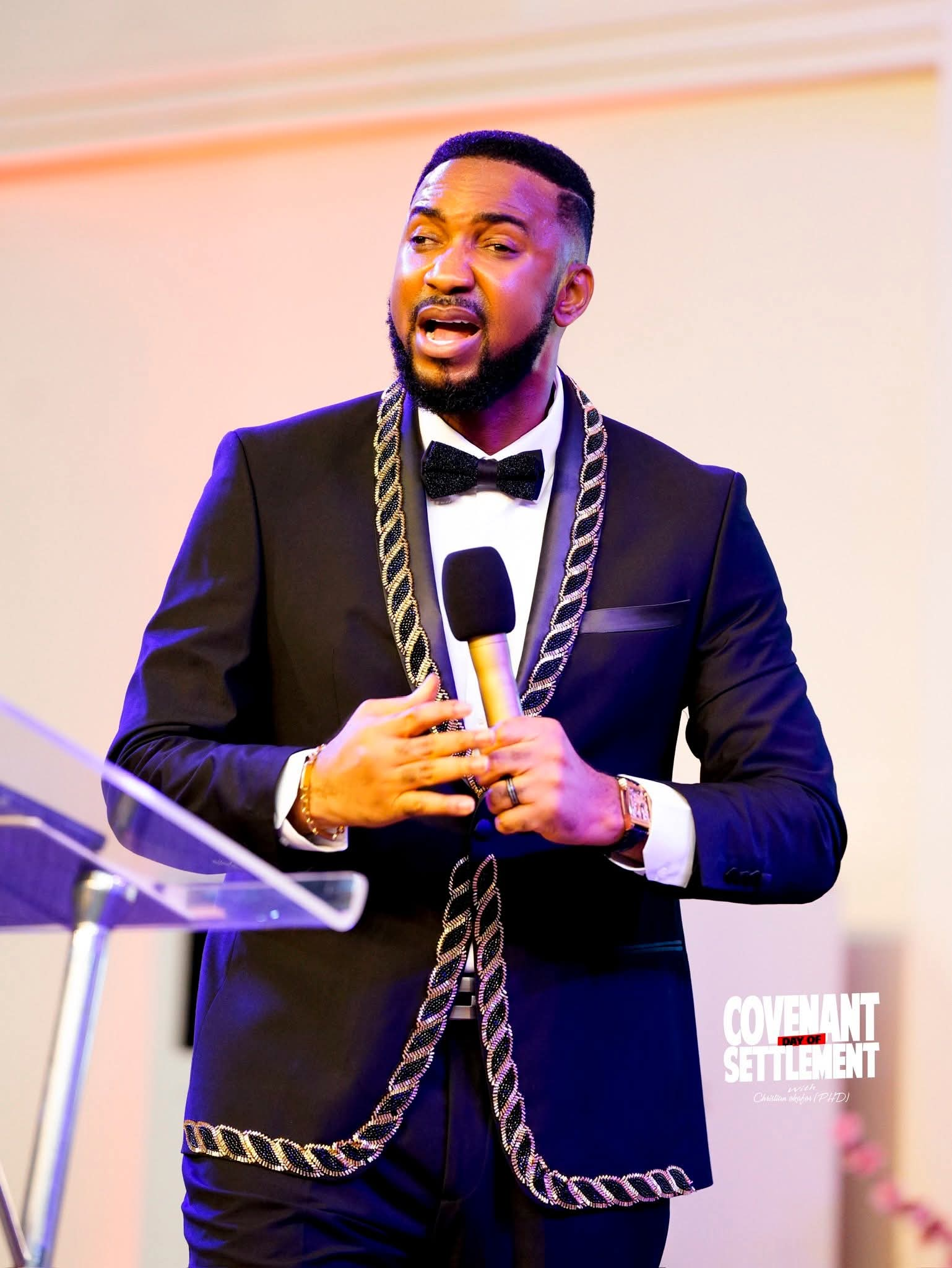
Turning Point 2: When You Stand for Light, You Encounter Many Battles — Dr. Chris Okafor
… “There is always a day of adversity.”
….. “Battles come with time.”
A turning point is a moment of decisive and beneficial change—a defining season that marks a significant shift in the life of an individual. It is the point at which God intervenes to alter a situation, often bringing lasting transformation.
Continuing his teaching on “Turning Point – Part 2,” the Generational Prophet of God and Senior Pastor of Grace Nation Worldwide, Dr. Chris Okafor, declared that anyone who chooses to stand for light must be prepared to face battles.
According to him, a turning point is a drastic change in the life of a person, brought about when God releases His divine agent of change. Such moments rarely come without resistance, as darkness always reacts when light appears.
Scriptural Case Studies of Turning Points
Dr. Okafor highlighted three biblical figures whose lives were radically transformed after intense battles:
*Joseph*
Joseph was divinely commissioned to preserve and deliver his people, yet he suffered for crimes he never committed. Betrayed, sold, and imprisoned, his journey was marked by pain. However, when his turning point arrived, he emerged from the prison to become the prime minister of Egypt and the talk of the nation.
*Jacob*
Jacob faced numerous battles, including prolonged conflict with his own brother. He endured hardship and uncertainty, but through divine encounters and God’s remembrance, his story changed. The man who fled in fear returned as a prince and the head of a great nation.
*Sarah*
Sarah experienced divine visitation at an age when childbirth was considered impossible. Through God’s intervention, her barrenness was turned into laughter, and her testimony became a clear example of how divine visitation ushers in a turning point.
*Keys That Provoke Turning Points*
The Generational Prophet outlined key spiritual principles that provoke turning points in the life of a believer:
Being Born Again
Spiritual rebirth is foundational. A genuine relationship with God positions a believer for divine intervention.
*Prayer and Fasting*
Dr. Okafor emphasized that fervent prayer, combined with fasting, accelerates spiritual breakthroughs. “If there is a man to pray, there is a God in heaven who answers prayers,” he declared.
*Sacrifice*
Sacrifice, he explained, is another powerful form of prayer.
When believers give sacrificially into God’s kingdom, God responds with honour and intervention, releasing turning points in areas of need.
*Service*
The level of one’s commitment to service in God’s vineyard determines the nature and timing of a turning point. Faithful service, even in the midst of battles, attracts divine remembrance.
The glorious Sunday service was marked by a powerful move of the Holy Spirit, with deliverance, miracles, healings, restoration, and solutions to diverse challenges holding people bound.
society
Otega Ogra: Online Misinformation Endangers Public Trust and Stability
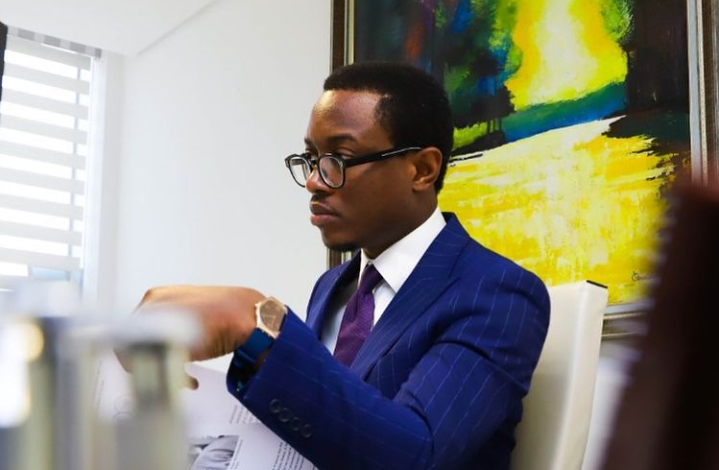
Otega Ogra: Online Misinformation Endangers Public Trust and Stability
society
Iworo FM 96.3 Celebrates First Anniversary in Grand Style
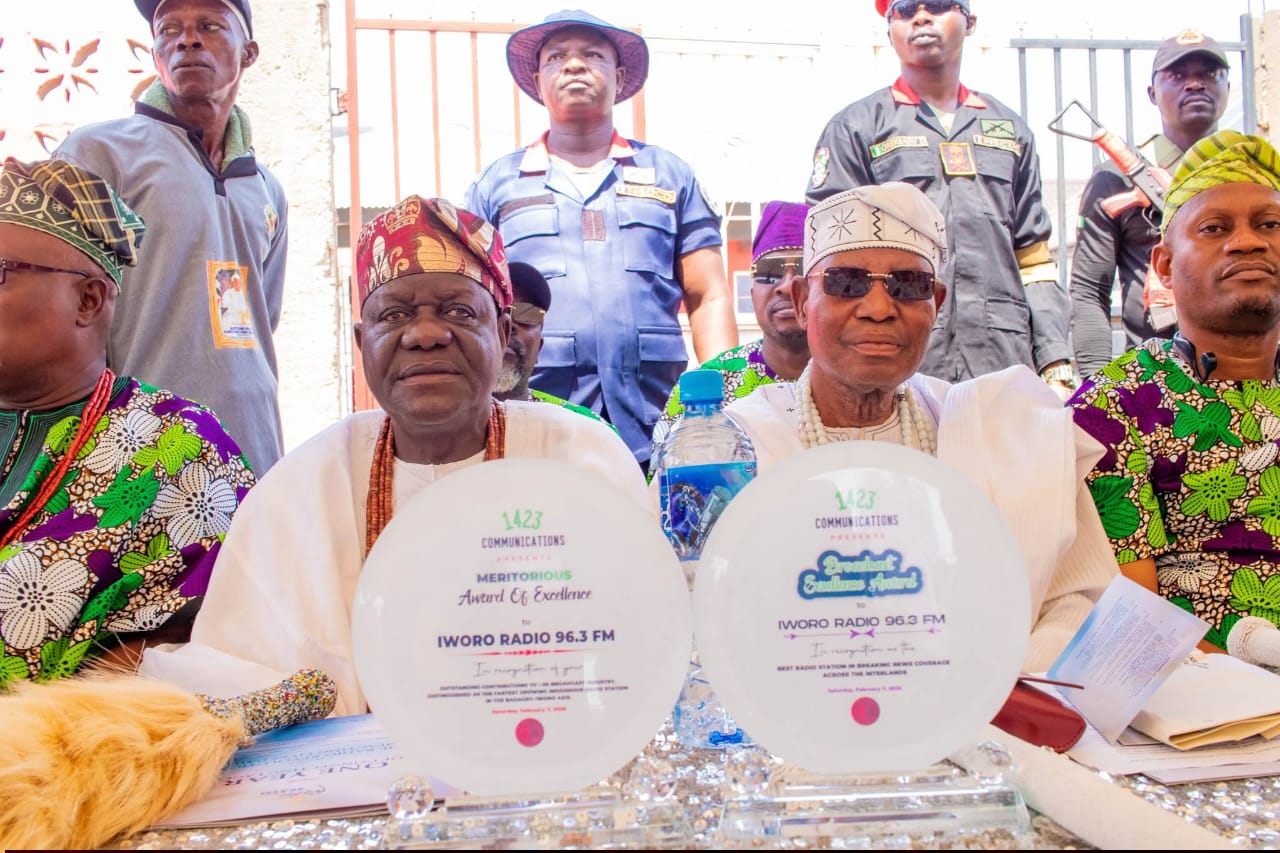
*Iworo FM 96.3 Celebrates First Anniversary in Grand Style
Nigeria’s foremost indigenous radio station, Iworo FM 96.3, on Saturday, 7th February 2026, celebrated its first anniversary in grand style.
The event attracted several notable personalities from Iworo and its environs, including the traditional ruler, the Oniworo of Iworo-Awori Kingdom, Oba (Dr.) Oladele Friday Kosoko; the Chairman of Olorunda LCDA, Hon. Ajose Peter Kumayon; Oba of Apa kingdom, Christian and Muslim clerics, among others.
The glamorous event commenced with a session of thanksgiving to appreciate God for the success of the radio station since its establishment in 2025. The organisers acknowledged the challenges encountered along the way but expressed gratitude to God for His intervention and support in ensuring the station rose above all odds.
According to the Oba of Apa kingdom, the presence of Iworo FM has brought significant development to the environment. He stated that the station has introduced Iworo Kingdom to people beyond its immediate community and has largely placed it on the national map. He further noted the tremendous progress recorded in the station’s operations and commended the management for their foresight, which has benefited everyone in Iworo.
“Iworo FM is a good initiative that has attracted development to the community. It has placed Iworo Kingdom on the national map, all thanks to the amazing and laudable work of the management. Within one year, there has been tremendous progress in the operations of this radio station. I am glad to see the improvements and also congratulate the people of Iworo for having an investment like this,” he said.
Similarly, awards were presented to the management of the radio station by 1423 Communications in recognition of the station’s impact in the broadcasting industry.
The communication company presented awards for the Fastest Rising Indigenous Radio Station in the Badagry–Iworo axis and Best Radio Station in Breaking News Coverage Across the Interlands.
Speaking through its representative, the company explained that Iworo FM 96.3 has performed commendably well within a short period and truly deserves the accolades it has received.
“Iworo FM deserves all the accolades it is getting because it has done exceedingly well for the community and Lagos State as a whole. These awards are the result of careful observation of the station’s operations and activities. It is indeed marvellous,” the representative said.
While receiving the awards, Oba Oladele Friday Kosoko, who also serves as the Board Chairman, expressed appreciation to the communication company, noting that he would continue to remain committed to the growth of the radio station.
“We are very happy with this award. It shows that we are being watched, and to be considered for these laudable awards means a lot to us. I will continue to show commitment to this radio station and will do even more as we move forward in the coming years,” he said.
The event also featured raffle draws, during which participants won various items including fans, bags of rice, clothing materials, and other food items.
-

 celebrity radar - gossips6 months ago
celebrity radar - gossips6 months agoWhy Babangida’s Hilltop Home Became Nigeria’s Political “Mecca”
-

 society6 months ago
society6 months agoPower is a Loan, Not a Possession: The Sacred Duty of Planting People
-

 news6 months ago
news6 months agoTHE APPOINTMENT OF WASIU AYINDE BY THE FEDERAL GOVERNMENT AS AN AMBASSADOR SOUNDS EMBARRASSING
-

 Business6 months ago
Business6 months agoBatsumi Travel CEO Lisa Sebogodi Wins Prestigious Africa Travel 100 Women Award








